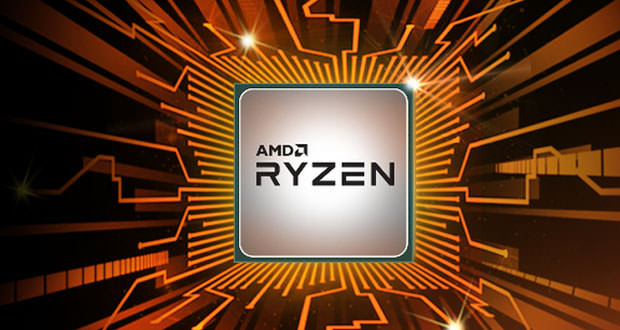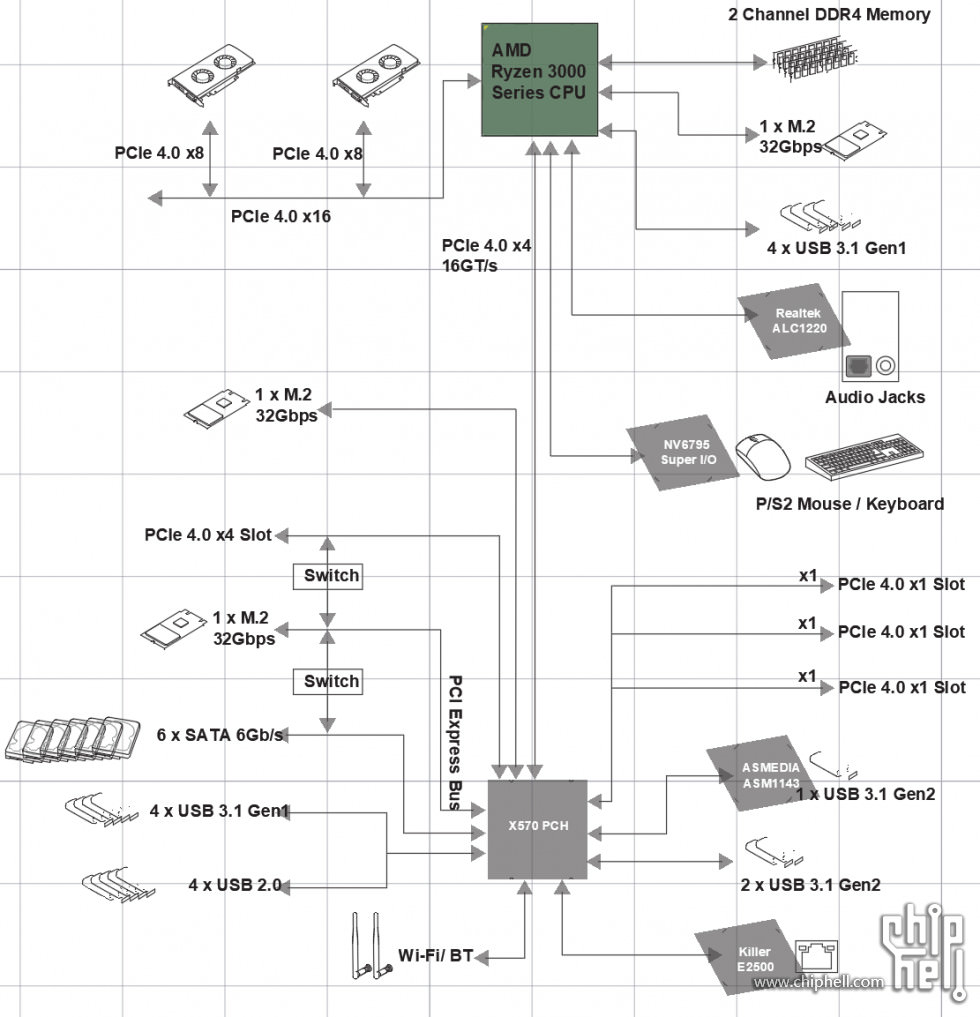The PCI Express 4.0 controller is the real novelty of the AMD X570 chipset
Together with the new-generation Ryzen 3000 processors, AMD will introduce the X570 chipset to the market, a model that will implement PCI Express 4.0 controllers for the first time.
Together with the new Ryzen processors of the 3000 series, built with 7-nanometer production technology and based on Zen 2 architecture, AMD will also make available the X570 chipset to be combined with new motherboards. This is a proposal that takes the place of the X470 model currently on the market, designed to make the most of the new features of the Ryzen 3000 CPU.
Technical characteristics and operating diagrams of this new chipset have emerged online, featuring official support for the PCI Express 4.0 standard for the first time implemented in a product intended for the consumer market. The Valhalla platform, which combines Ryzen 3000 processor with X570 chipset, provides a total of 24 PCI Express 4.0 lines of which 16 are allocated to the video card with the possibility of managing a 16x signal for a single card or two cards with each 8 lines allocated.
Of the remaining 8 PCI Express lines, 4 are connected to the NVME slot for the onboard stroage and the other 4 manage communication with the chipset. The latter component is in turn equipped with a controller capable of handling up to 16 lines PCI Express 4.0, which are allocated to two M.2 slots for integrated storage, to PCI Express 1x slots mounted onboard, to wired and wireless network peripherals integrated onboard, USB controller and SATA storage devices.
These new features affect the overall consumption of the new chipset, with a TDP that is indicated by the source being 15 Watts versus the 5 Watts of the previous generation. For this reason, all X570 motherboards whose images have appeared online are equipped with a cooling system with a specific fan for the chipset.
We recall how the Ryzen 3000 processors can also be used with socket AM4 motherboards already on the market, based on the 300 and 400 series chipsets, provided that they receive an update of the bios that implements their official support. All the major producers are working to complete the development of this bios before the official release of the processors, expected for the beginning of the third quarter of 2019.


